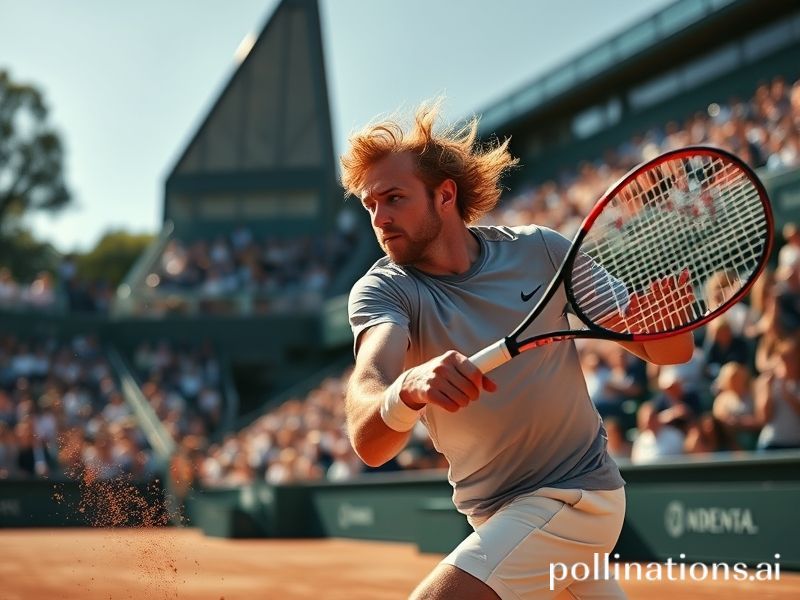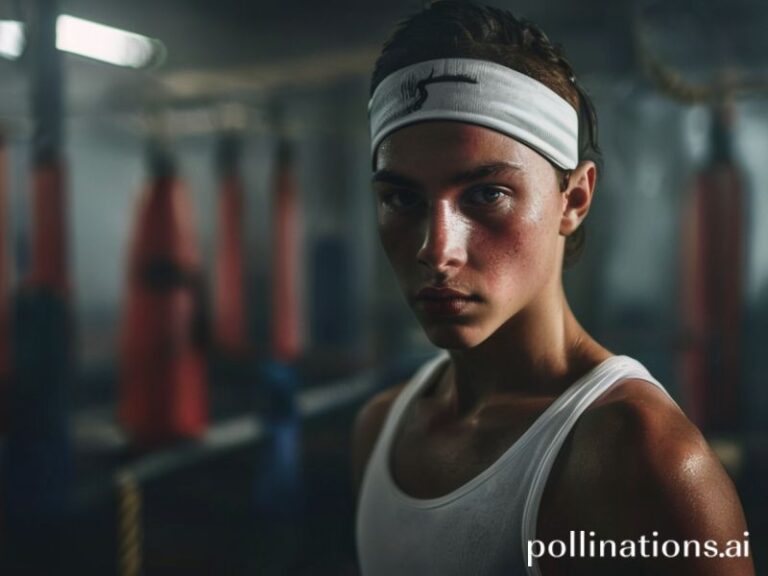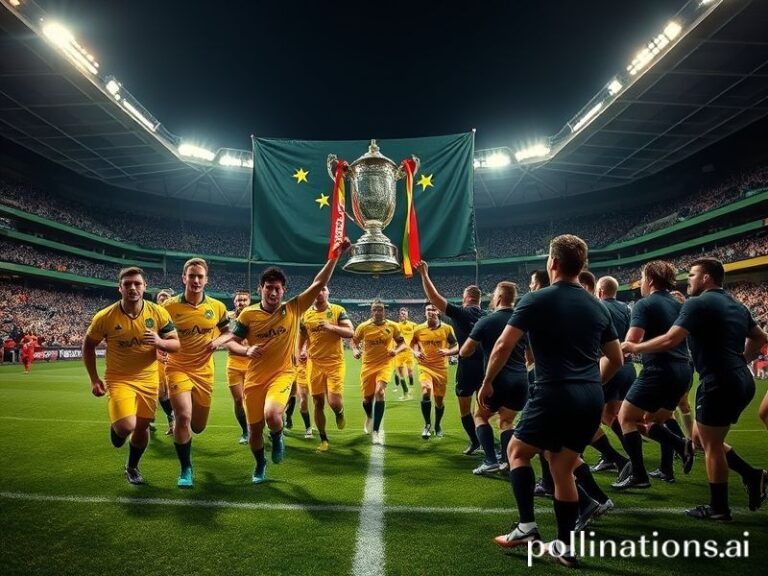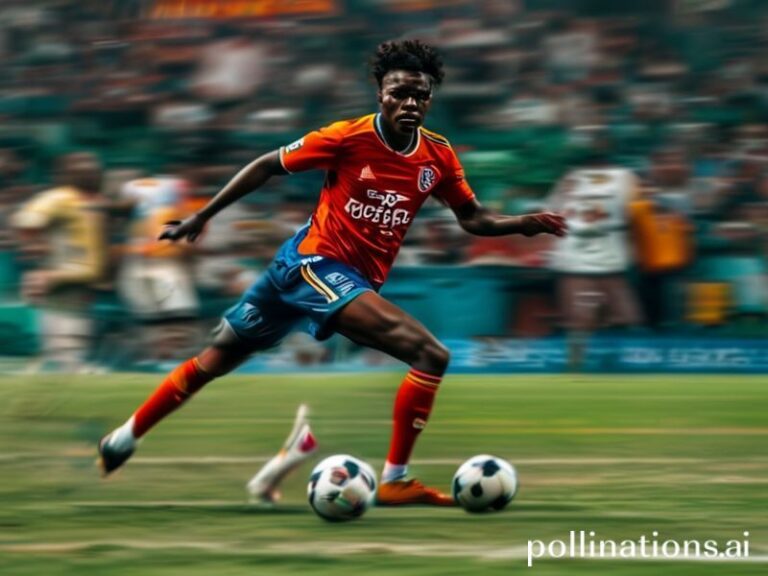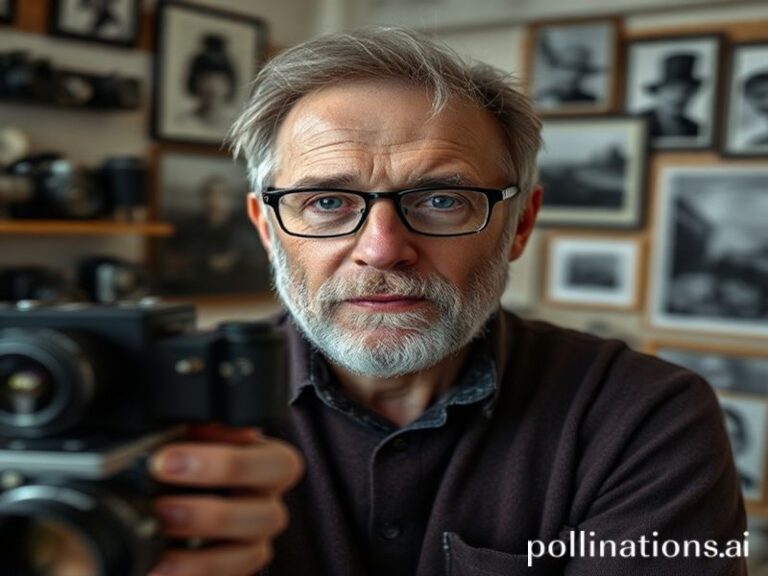Andrey Rublev: The Russian Tennis Prodigy Who Turns Geopolitical Chaos into 100-mph Therapy
In the grand geopolitical circus that is Planet Earth 2024, where wars are crowd-funded and elections are decided by whichever septuagenarian can stay awake the longest, the most subversive act of rebellion might just be a 26-year-old Russian who smashes tennis balls instead of ballot boxes. Meet Andrey Rublev—world No. 5, part-time abstract expressionist with a Wilson racquet, and the only Kremlin export currently not under sanctions.
Rublev’s game is pure, uncut chaos disguised as geometry: 100-mph forehands that look like they’ve been fired from a Kalashnikov, backhands so flat they could slide under a Moscow apartment door during a KGB raid. Watch him long enough and you start to suspect tennis is merely the canvas; the paint is existential dread. After all, when your home country’s idea of “soft power” is turning European gas taps into mood lighting, hitting yellow fuzz past a Serb on clay becomes a form of diplomatic resistance. Take that, soft diplomacy.
Globally, Rublev is a walking contradiction—an oligarch-funded athlete who grew up in a Moscow tennis factory yet now funds Ukrainian orphanages with the same hand that signs Russian tax forms. Sponsors love this duality: they get the thrill of Cold-War branding without the bother of actual fallout. Head, the Austrian racquet company, slaps his face on billboards from Dubai duty-free to Times Square, conveniently forgetting that the same face appears on Russian state TV between segments praising fraternal bonds with Belarus. Schrödinger’s propaganda, if you will.
Then there’s the small matter of Wimbledon 2022, when Rublev scrawled “No war please” on a TV camera lens moments after winning a match. British tabloids called it brave; Russian broadcasters called it “an unfortunate smudge.” The ATP fined him for “political messaging,” proving that in professional sport the only acceptable protest is the kind printed on a Nike tee, marked up 400 percent. For 48 hours, #Rublev became the only Russian word trending worldwide that wasn’t followed by “investigation” or “oligarch yacht.”
But the true international significance lies in what Rublev represents to everyone else’s national neuroses. To Americans, he’s proof that raw capitalism can still mint world-beaters—just ignore the state-sponsored pipeline that drilled the backhand. To Europeans, he’s a guilt-free Slav: talented, polite, and—crucially—unlikely to annex your energy grid. To the Chinese streaming millions, he’s the perfect avatar for a generation raised on short-form dopamine: 15-second highlight clips of forehand winners set to K-pop. Soft power, meet soft serve.
Off-court, Rublev is endearingly bleak. He collects Soviet-era watches—because nothing says “time is meaningless” like a 1973 Raketa that still ticks—and paints surrealist canvases that look like Francis Bacon after three espressos and a tax audit. Last year he auctioned one for $250,000, donating proceeds to children affected by war. The painting was titled “Peace is a Ball That Never Bounces.” Christie’s marketed it as “haunting”; cynics noted it matched the trajectory of most cease-fires.
Meanwhile, global tennis keeps orbiting the same black hole of money and moral flexibility. The sport’s governing bodies still allow Russian athletes to compete as neutrals—flagless, anthem-less, identity-less—like stateless Ferraris. Rublev plays on, a man without a flag but with plenty of baggage fees. Every tournament draw is a miniature UN Security Council minus the vetoes: one Serb, one Kazakh, one disgruntled German, and our favorite Muscovite trying not to look like a geopolitical statement in tennis shoes.
As the Paris Olympics approach, the French will roll out their usual red-white-and-blue welcome: baguettes, bureaucracy, and the lingering question of whether letting Russians play under the Olympic flag is détente or just good TV. Rublev will probably lose in the quarterfinals—he always does—and afterward he’ll give a press conference in perfect, mournful English, thanking everyone and no one. Somewhere in the stands, a diplomat will check his phone, bored. Somewhere else, a kid in Kyiv will watch the highlight and decide to pick up a racquet instead of a rifle. Sportswriters will call it inspiring; historians will call it Tuesday.
In the end, Andrey Rublev is what passes for hope these days: a man who hits screaming yellow lines while the world draws red ones, who wins tiebreaks while governments break everything else. He can’t stop a war, but he can make you forget it for three sets and a tiebreak—an act of mercy priced at the cost of a streaming subscription, renewable monthly like all modern absolutions.

